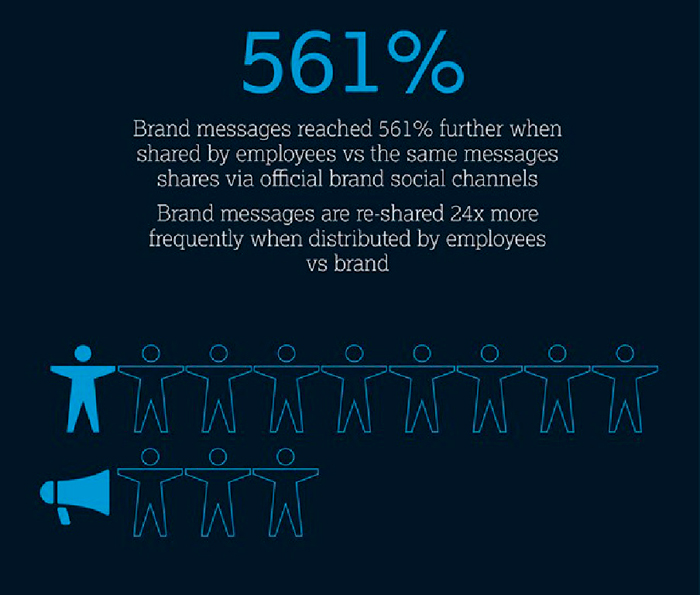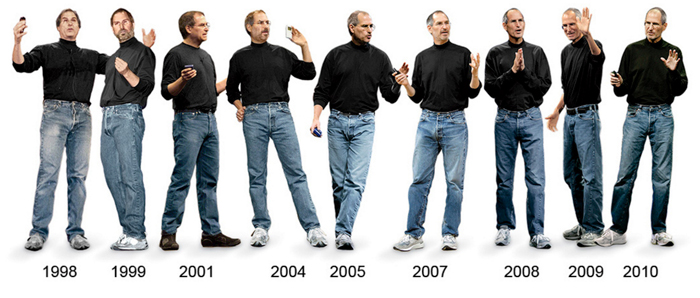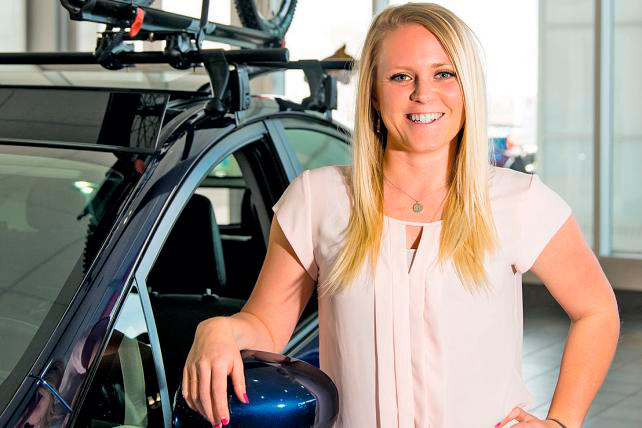Personal Branding: We Are All CEOs (Part 1)
In a two-part post, we take a look at personal branding and why it’s not just for celebrities or VIPs anymore. You can read the second part here
How do others see you in the business arena? What do others think when they hear your name? Your unique personal brand isn’t a collection of past dates, facts, and accomplishments reflected on your CV. It’s your online and offline reputation, it’s how you interact with others, and it’s fundamental to whatever you do every day, whether you’re a student on campus, a globe-trotting CEO, or an office-bound downtown professional.
In short, everyone has a personal brand, whether they like it or not.
Tom Peters, co-author of “In Search of Excellence: America’s Best Run Companies,”[1] a landmark business book, provides his thoughts on why we are all CEOs.
Management consultant Tom Peters suggests, “We are CEOSs of our own companies: Me Inc. To be in business today, our most important job is to be head marketer for the brand called You.” – Tom Peters, “The Brand Called You” |
Tom Peters offers tips on building “Brand You” in a series of videos. For his segment on “Brand You: Tell Stories,”[2] watch below.
Related: Brand Stories – 5 Compelling Examples That Sell Themselves (part 1 of 2)
Personal Branding: The Rise of Self
Personal branding is not an overnight task; it requires time and focus upfront as well as ongoing maintenance. Personal branding is not limited to the entrepreneur either — it applies to each and every one of us.
You can be a mini-celebrity within your own industry. CEOs, television presenters, marketing mavens, team sports figures, and popular professors are longstanding examples of individuals who have built personal brands from inside their place of work.
Or, you can create a your own personal brand outside the corporate world.
These days, just about everybody knows someone — if not themselves — who has taken the leap, leaving a more traditional job to turn their side gig passion, talent, or skill into a full-time business. Some are serial entrepreneurs, freelancers, consultants, trainers, writers, artists, musicians, software developers, and yet others are self-employed creatives.
More than 15 million Americans work for themselves and more say they want to.[3] At 15 percent of all workers, self-employment is at an all-time high in Britain, which trails several other European countries, such as Ireland, Portugal, and Italy.[4]

Image: Labour Force Statistics, OECD
As more and more employees step off the corporate ladder for good, the importance of identifying and building a personal brand is paramount. This is exponentially amplified by the internet.
What is Your Personal Brand Profile?
A compelling brand personality that is meaningful and relevant to the people you want to reach is required of an individual in the same way it’s required of a company, product, or service.
Related: Personality Matters, Bring Your Brand to Life to Grow Your Profits
To express your best self in words, try this little exercise from “Personal Branding for Dummies”[5] and watch the Personality Profile Performer™ System video below.
- What three or four keywords describe your essential qualities quickly and clearly?
- What is your essence factor, the core of who you are? “I know I am in my element when __________.”
- What is your authority factor, the knowledge that you hold and the skills that you possess? “People recognize my expertise in _________.”
- What is your superstar factor, the qualities that set you apart? (This factor is how you get things done or what you’re known for.) “People comment on my ability to ___________.”
Foundational principles in branding — brand purpose, positioning, and personality — apply to personal brands as well as to corporate brands, services, and products. Reviewed in context of a personal brand, these core basics are:
Brand Purpose – Defining what you stand for and why you choose to excel in a particular field.
Brand Positioning – Explaining how you stand out from the crowd, your peers and competitors, and how you will execute on that strategy.
Brand Personality – Determining the style and characteristics of how you communicate with others to create an emotional connection.
Related: Personal Branding: The Difference Between Product and Personal Branding
Watch this video from The Onion[6], a news satire media site, to see a spoof about what NEVER happens to those who fail to create a personal brand that stands out.
Related: Personal Branding: We Are All CEOs (Part 2)
Key Steps to Building Your Personal Brand
Map out a branding strategy based on your most important asset: you. Developing a personal brand requires giving thought to your skills, values, passions, and personality. Define how you are unique from your peers and the competition. Identify who you want to reach.
In fact, this exercise is one of the key elements in our brand building programme called the Personality Profile Performer™. As you map out each of your different target audience types — the people you want to be highly visible to, influence and reach — using the ‘Purchaser Personas’ system, the outputs provide the critical insights and direction for how your brand can speak to your primary audience on their terms so they find your message compelling. Winning their hearts and minds on their terms so you can grow your brand and increase your profile. You can watch a free course preview here.

Transform Your Brand – Increase Your Sales with The Personality Profile Performer™ Programme
Now re-evaluate your personal brand. Think about and write down your:
- needs
- core values
- what you stand for – define your purpose
- interests/passions
- vision
- strengths
- weaknesses
- what makes you special – your X factor
- personality
- education / experience
- validation with external feedback (peers, friends)
- positioning statement
- personal brand statement
Alternatively if you want in-person professional direction to build your brand and would like to explore working with us then drop us a line to [email protected] or give us a call T: +353 1 8322724 (GMT hours). We’d be delighted to talk with you.
The Power of Personal Branding
Research shows that when individuals build their personal brands from within an umbrella organization, the business brand(s) to which they’re connected will gain traction as well. Paris-based MSL Group indicates[7] that brand messages:
- Will reach 561 percent more people when shared by employees
- Are shared 24 times more often when distributed by employees

Image: via Scribd, MSL Group
On the entrepreneurial front, Millennial Branding LLC tells YFS Magazine[8], “Your personal brand is transferable from one company to the next and serves as your best protection against business factors you can’t control.”
Top 10 Personal Branding Mistakes to Avoid
Effective personal branding requires dedicated time, proactivity, and professional guidance. Leaving your livelihood to chance or in the hands of others is not an option. Avoid these ten mistakes most frequently made:
- Failing to clarify your purpose
- Tooting your own horn loudly
- Being overly sales-y in any way
- Risking your honesty or authenticity
- Trying to please everyone
- Compromising quality for quantity
- Sloppy networking
- Lack of follow through
- Overlooking your online reputation
- Inconsistencies in what you say, stand for or post online
Related: Personal Branding: We Are All CEOs (Part 2)
4 Personal Branding Case Studies
1. Well-known entrepreneur who created a personal brand
Jamie Oliver started out as a pastry chef who shaped his brand on a healthy school lunch programme. He went on to write one of Britain’s best-selling cookbook, host TV series, endorse Sainsbury’s, multiple food brands and cookware bearing his name, operate restaurants,
win a TedX prize, an MBE, and a place on Britain’s rich list. Watch him tackle the obesity problem in America’s unhealthiest city.
Related: Brand Strategy: 6 Tips for Building Your Profit Growth Plan
2. Relatively unknown, yet a giant in the niche
Ryan is 5 years old. He likes toys. Ryan ToysReview is the world’s #1 YouTube video site. That viewership translates to around $1 million a month in advertising revenue alone.[9]
To read more about how his Mum learned to manage the viral phenomenon of her son’s personal brand, click here.
3. Corporate leader aligned with their personal brand
As Apple CEO, Steve Jobs was one of the most outstanding examples of intertwined and fully aligned personal and corporate branding the world has ever known. With 110% percent of his energy focused on Apple, his signature style on stage and off stage presented as reliably, unwaveringly simple persona, year after year.

Image via Pinterest
4. SME / SMB personal brand leaders
Laura Madison was selling Toyota cars in Montana so successfully using her own personal brand to promote the business via social media, that she now drives her own brand. Laura surpassed every sales target by promoting herself instead of the car dealership.

Image via AdAge
Although she saved the company advertising dollars, not every boss would rubber stamp such an approach. However, Laura’s boss says he wished he had 10 more just like her. To find out more about her transition to marketing expert at LauraDrives.com, read her story published in AdAge.
Related: CEO Brand Leadership: How Vision Drives Brand Growth
Ask Yourself These Questions About Your Personal Branding Success
Are you happy with what you find when you Google your own name?
Have you read and acted upon Google’s online reputation advice, seen here?
Have you leveraged all your resources, including networking?
Are you considering a new career direction and, if so, does your online brand presence help or hinder?
How long has it been since you refreshed your personal brand to include a great headshot, elevator pitch and bio?

Build Your Profitable Brand Using The Personality Profile Performer™ Programme with Lorraine Carter
[1] https://www.amazon.com/Search-Excellence-Americas-Best-Run-Companies/dp/0060548789
[2] https://www.youtube.com/watch?v=dH_AqvZJzM0
[3] http://www.pewresearch.org/fact-tank/2016/09/01/8-facts-about-american-workers
[4] https://data.oecd.org/emp/self-employment-rate.htm
[5] http://www.dummies.com/careers/find-a-job/personal-branding/personal-branding-for-dummies-cheat-sheet
[6] http://www.theonion.com/video/company-immediately-calls-job-applicant-upon-seein-31669
[7] https://www.scribd.com/doc/249863818/Infographic-Social-Employee-Advocacy
[8] http://yfsmagazine.com/2012/11/14/expert-reveal-12-personal-branding-tips-for-small-business-owners/3/
[9] https://www.theverge.com/2016/12/22/14031288/ryan-toys-review-biggest-youngest-youtube-star-millions






Leave a Reply
Want to join the discussion?Feel free to contribute!